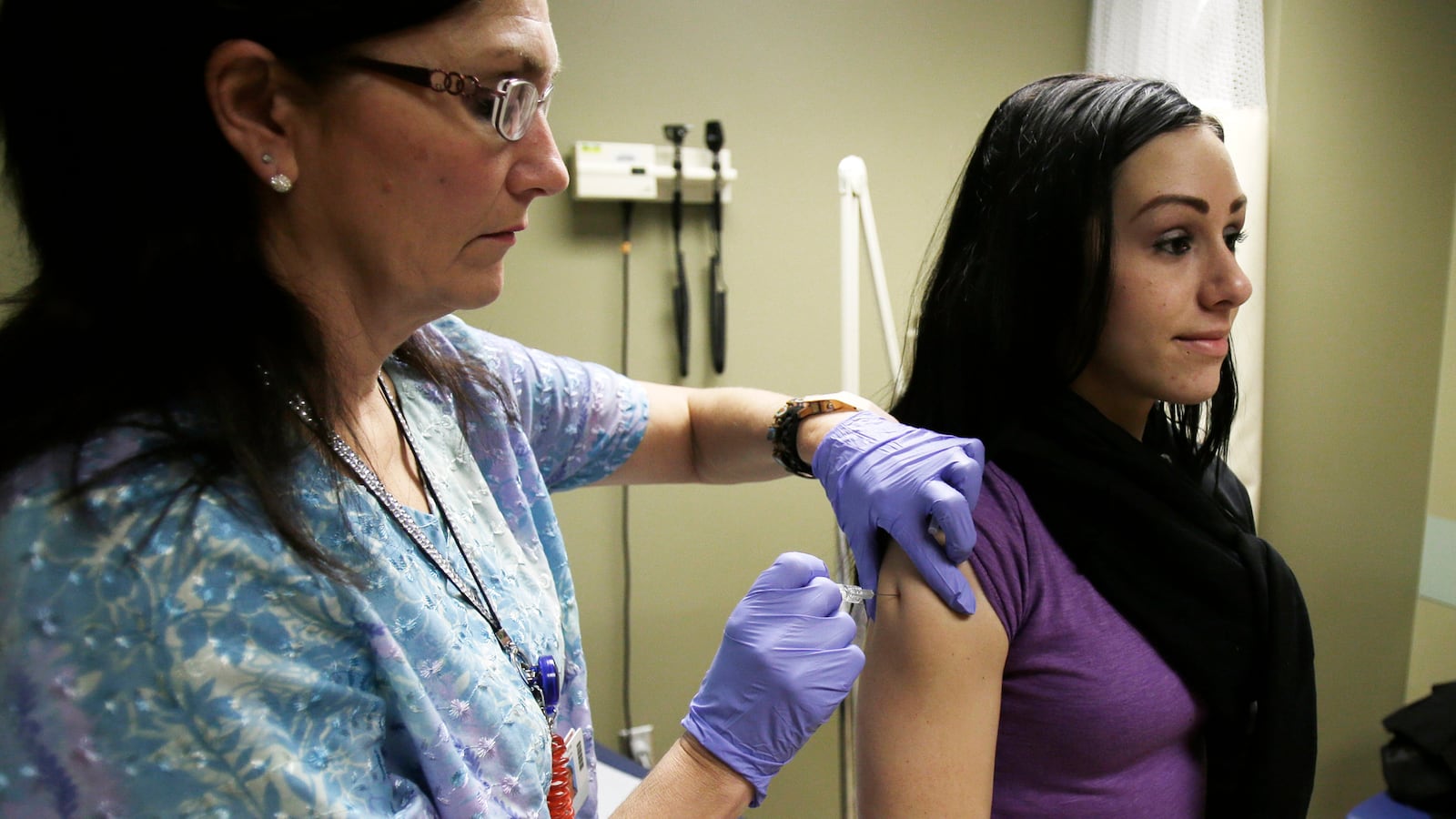Type the words “flu shot” into Google and some 250 million results appear. No surprise there: 47 states have reported widespread influenza activity, and this flu season is expected to be “among the worst in a decade,” warns the Centers for Disease Control.
To protect against the bug, the CDC recommends that everyone over the age of 6 months get a flu vaccine—a mix of three different dead flu viruses based on a best estimate by scientists about which strains will circulate each year.

Though the CDC did guess well with most of the strains circulating this year, even CDC Director Dr. Thomas Frieden acknowledges that the venerable flu shot is only 62 percent effective in reducing symptoms of the disease. In other words, for every 100 people who get the flu shot, 38 of them will get the flu anyway. That’s after they’ve injected themselves with dead viruses and, in most cases, preservatives made from mercury and other toxins that keep the vaccination fresh. Thimerosal (as it’s commonly listed on the ingredients list) contains approximately 49 percent ethylmercury, and can cause impaired neurological development in children, as well as headaches, respiratory distress, and gastrointestinal damage, according to the U.S. Environmental Protection Agency.
Everyone from your doctor to your neighbor to the barista at Starbucks will tell you it’s a good idea to get a flu shot, particularly if you’re pregnant or elderly. But how much do we really know about the vaccine? While it’s crucial to prevent and contain potentially deadly epidemics, there has been conflicting evidence to prove that the flu shot serves that purpose. At 62 percent, the flu vaccine’s success rate falls far short of the rate normally required by public-health officials to recommend widespread usage: most childhood vaccines are around 90 percent effective. If we’re injecting ourselves with various strains of the flu each year, shouldn’t we be better protected? Why do we hear so much about the flu shot and comparatively little about prevention?
The human body seems to be pretty good at protecting itself from naturally acquired diseases by producing its own antibodies. Remember the chicken-pox virus you had as a kid? Your immune system fought it off, created chicken-pox antibodies, and protected you from getting it again. However, everybody’s ability to fight infection is different, and for immune-compromised individuals, the vaccine may not be worth potential risks. There are always common-sense precautions to take when getting vaccinated, such as requesting a Thimerosal-free version. More on this can be found on my website.
There is also evidence that healthy people are more likely to get the flu shot, and therefore less likely to get the flu—and die from it—than people who don’t get vaccinated. A 2006 study in the International Journal of Epidemiology found that healthy people tended to choose flu vaccination, while the “frail elderly” didn’t or couldn’t. Basically, if you care more about your health overall, you’re more likely to take protective measure—like getting the flu shot, and probably also eating right, exercising, taking vitamins, etc.
Though vaccines have eliminated or slowed the spread of awful diseases, they also have caused harm. All immunizations, including the one for the flu, come with side effects. In the case of the flu shot, side effects include, but are not limited to, fever, aches, fatigue, increased risk of seizure in children, and, in extreme cases, Guillain-Barre syndrome.
What’s more, an ongoing study out of Germany of 8,000 unvaccinated children showed that vaccinated children have at least two to five times more diseases and disorders than unvaccinated children. The independent, self-funded study raises the question of whether children’s immune systems that develop naturally without vaccines are better equipped than children whose systems have been altered by inoculations. It’s an interesting point to ponder.
This flu season, as hysterics fly in the media and elsewhere, try to keep a rational head about the best health decisions for you and your family. Whether or not you’ve had the flu shot, stay as healthy as possible by eating lots of organic fruits and vegetables, washing your hands with nontoxic antibacterial soap, drinking plenty of fluids, exercising, and taking key supplements. Ultimately, the only person responsible for your health decisions is you.
Note: Information provided herein is not intended to treat or diagnose any health condition. As always, consult your healthcare provider with any questions or health concerns.





